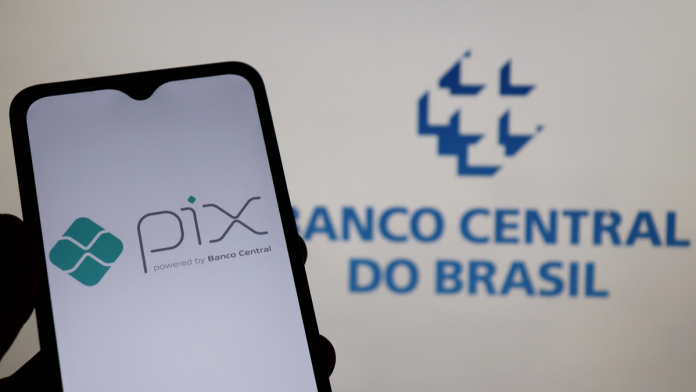The Central Bank of Brazil, the Banco Central do Brasil, has proposed making Pix global as part of efforts to make cross-border transactions more seamless, according to Bloomberg.
During a meeting of 20 policymakers from across the world in Sao Paulo, discussions took place on how to maximise global cross-border payment speed and efficiency. This meeting saw a Central Bank of Brazil representative propose Pix as a potential solution.
Pix was first launched by the central bank in 2020 but its relatively short operating history has seen the instant payments platform become widely utilised in Brazil for both day-to-day consumer and business payments, more so than both debit cards and credit cards.
The system has already been taken multinational to some extent, as Brazilian tourists in the country’s neighbours Uruguay and Paraguay are able to use their Pix digital wallets to pay for services such as restaurants and hotels via a QR code.
However, Bloomberg outlined that the central bank is interested in taking Pix even further afield, beyond the borders of Latin America and potentially to the traditional banking heartland of Europe, as well as Asia.
The business news outlet stated that Italy could sign a bilateral agreement with Pix, five unnamed Asian countries are already testing its potential for cross-border payments, and general interest has been raised across Latin America, Europe, Asia and Africa.
Pix’s rise in popularity in Brazil suggests that both consumers and businesses, at least in its founding country, see immense value in the platform. As of December 2023, three-years into its existence as a fully operational platform, Pix had 150 million users encompassing both business and consumer accounts.
Greater global adoption of Pix could be significant to various industries for various reasons, including payments, fintech, banking and gambling.
If adopted in Europe, it would mark a significant shift away from the traditional banking methods and debit card payments that have dominated the continent over recent decades, a trend which has already been seen to some extent with the rise of challenger neobanks.
Meanwhile, in developing economies across Africa, Asia and Latin America, adoption of Pix – or similar instant payments platforms – could be seen by authorities as a solution to the problem of unbanked communities, a trend which has also been observed in Brazil.
Lastly, the betting sector should pay close attention to these developments, especially with Brazil set to launch a nationwide regulated sports betting market later this year after legislation received presidential approval in late 2023.
Multinational operators such as Entain are already preparing for the widespread use of Pix as a payment method in Brazil and its anticipated use by the majority of bettors in the country for gambling transactions.
However, Brazil is not the only Latin American country operators are interested in, with Peru, Chile and Colombia also high-profile markets with strong potential in the continent.
Multinational rollout of Pix beyond Brazil’s borders could pose a potential benefit to operators interested in regional expansion by providing these firms with one reliable payments platform across multiple markets.
This is of course all speculation at this point in time because as it stands, Pix is only utilised internationally to a limited extent, some countries have just expressed interest in agreements and others are in testing phases.
However, given the major implications, opportunities and possible challenges such a development could pose, stakeholders across various financial sectors should be paying close attention.























